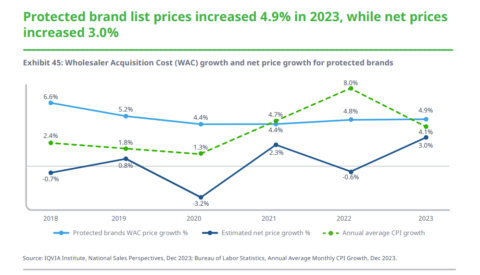Inflection Point
The thorniest problem in biopharmaceuticals is the growing conflict between cost-effectiveness and budget impact. In other words, we increasingly have weapons against disease that are, objectively and mathematically, a good deal, but we don’t necessarily have the money to pay for them.
To rip off Matt Herper: it’s a terrible Zen koan.
All of that is organ music for this plea: block out a chunk of your day to read Lisa Jarvis’ exhaustive look in Bloomberg at the complexities of how we pay for (or don’t!) gene therapies. Lisa’s reporting makes clear that there are no easy answers, though I’m interested in her suggestion that the government ought to prop things up while we work through the problem.
One of the real risks, if we can’t figure this out, is that society just stops incentivizing this kind of innovation. We’re headed in that direction now, as this STAT story from this morning makes clear. Early-stage companies in the cell and gene therapy space are really having issues.
It’s incredibly important not to think of the good-deal-yet-can’t-afford problem as solely a gene therapy thing, though. This may be the framing that we see around Alzheimer’s medicine. It’s absolutely going to be the philosophical issue around obesity meds.
As I’ve noted before, Americans are terrible at thinking through tradeoffs. There is no iron law that says that we can’t, as a society, shift spending from low-value services to high-value ones, but — in practice — that’s been an enormously hard nut to crack.
And it gets even harder when that debate starts going beyond health. Should we cut defense spending to ensure universal coverage of Alzheimer’s medicines? Cut agricultural subsidies to get more people on obesity drugs?
But we’re going to have to start figuring out how to have those conversations or else we’re going to end up making a bunch of decisions that hurt our health in the short term and our wallets in the long run.
Quick Turns
- Relay Therapeutics is changing its development plans for a cancer medicine, holding off on asking for FDA approval for a small indication because of the IRA. Endpoints has coverage, but I’m curious to get more context, so I’ll be listening to the company’s conference call at some point.
- I flagged this briefly on Friday, but’s worth mentioning again: UnitedHealth Group generated about $6 billion in profits last quarter, even though the company ended up paying for a lot more health care than expected. It’s almost like the game is rigged.
- There are a lot of op-eds about PBM regulation. Most are lukewarm at best. This one — by a couple of USC experts — bucks that trend by bringing data and examples to the discussion.
- Some Alzheimer’s news today: CMS is loosening rules for how it will pay for PET scans. PET scans are an important tool in the use of the new generation of Alzheimer’s meds, so CMS’ changes should be good news for patients.
- Some more Alzheimer’s news: the government is blaming the new Alzheimer’s drugs, in part, for rising Part B premiums. The connection between the meds and premiums was buried in a Federal Register document, but it’s still bad form, as the Alliance for Aging Research’s Sue Peschin pointed out.
- It’s Monday, and I’m already obesity-ied out. But Scientific American has a solid piece with the headline “Should Insurance Cover Wegovy, Ozempic, and Other New Weight-Loss Drugs?” You probably already have a feel for the answer. If you don’t, it’s not a bad story.
- Providers think that health insurers are just medical scofflaws when it comes to prior auth, per a Modern Healthcare story that includes this gem of a quote from Scripps Health CEO Chris Van Gorder: “If you’re driving too fast and you see a police car, you have time to slow down. The insurance companies are seeing a police car and they’re slowing down.”
- There is a shortage of compounded Avastin for wet AMD, so eye docs have asked CMS to tell its contractors to pull back on requirements that patients step through Avastin before they can get other, higher-priced, AMD drugs.
- I feel for Pfizer. The company went all-in on COVID-19, rescued the world from the pandemic, and their reward is a share price that’s lower than it was before COVID hit and a need to cut $3.5 billion in costs by the end of next year.
-
If this email was forwarded to you, and you’d like to become a reader, click here to see back issues of Cost Curve and subscribe to the newsletter.




